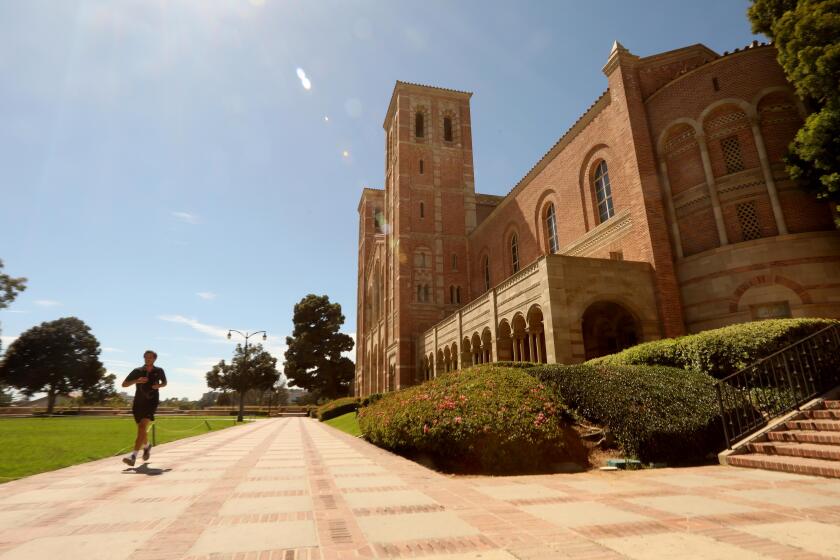City Utility Tax Doubled to Ease Budget Deficit : Hawthorne: City Councilâs action is expected to raise $15 million over four years. Some fear it will chase away businesses.
After weeks of delay, the Hawthorne City Council has doubled the cityâs utility tax in an effort to raise millions of dollars. The move was spurred by a long-awaited audit report, delivered moments before the vote, that details the financial plight of the city with its estimated $10.5-million budget shortfall.
The increase, which is effective immediately, pushes the tax rate on residential and commercial electric, gas and cable television bills from 5% to 10% and is expected to raise $15 million over four years. It is the first tax increase passed in response to City Manager Todd W. Argowâs 24-point plan for fiscal recovery unveiled in January.
Argow originally proposed increasing the tax for 18 months to help âstop the hemorrhageâ of city finances, but council members decided to extend the tax over four years.
âIf weâd stayed locked into 18 months, I wouldnât have voted for it,â Mayor Larry Guidi said. âItâs taken 10 years to screw the city up. Do you think weâre going to fix it in 18 months? Itâs time we run the city like a business.â
But Councilwoman Betty J. Ainsworth, the holdout in the 4-1 vote Monday, said she wouldnât support a tax that was not first discussed at public hearings.
âThis wasnât what we presented to the business community. It should have an 18-month sunset clause,â she said. Otherwise, new businesses will not settle in Hawthorne and current businesses will relocate, she said.
But Councilman Steven Andersen defended his vote for the cityâs largest utility tax increase.
âEighteen months is just a very large Band-Aid. Taxes arenât the only thing businesses look at,â he said. Andersen and other council members indicated that they would consider limiting the amount that large utility users have to pay.
Without a cap, the tax is expected to cost the cityâs biggest businesses and large utility users millions of dollars.
Chamber of Commerce officials, who originally supported the tax increase for only 18 months, were disappointed with the vote but say they understand the cityâs need for cash.
âThe only thing they didnât do that we asked for was the 1997 sunset clause, but we know they need to do something,â Chamber Executive Director John Wogan said. âWeâre frustrated, but what else do we do?â
Northrop, the cityâs largest utility user and highest taxpayer, will watch its utility tax jump from about $500,000 to about $1 million a year.
âItâs pretty much what we expected. We understand the city is in a bad way right now, and itâs just a cost of doing business,â Northrop spokesman Jim Hart said.
Representatives of Southern California Edison and the Gas Co. echoed that feeling.
âWeâre just happy that theyâre going to revisit the tax every year and especially the idea of putting a cap on the tax bill,â said Choca Lee Mathieu, a Southern California Edison representative.
But Mark Schoenfeld, owner of a catering business in the city, said his utility bills have grown exponentially while his profits, battered by the decline in the local aerospace industry, have plummeted.
âMy gross sales have gone from $6 million a few years ago to $2.6 million last year. But my utility bill, which is about $500 a month, will go to $1,000. My gripe is I donât think the taxes are being distributed fairly,â he said.
The tax increase has Schoenfeld looking for storage and freezer space outside the city.
âIâve already got a favorable response from companies in Gardena, Commerce and Carson who want to share freezer spaceâ to avoid paying Hawthorneâs higher tax, he said.
The council will consider raising business license fees at a meeting Monday.
Current proposals include more than doubling fees based on gross sales and raising the current fee cap from $50,000 to $500,000. Those increases, if passed, are expected to raise more than $1 million a year, according to city reports.
More to Read
Sign up for Essential California
The most important California stories and recommendations in your inbox every morning.
You may occasionally receive promotional content from the Los Angeles Times.










